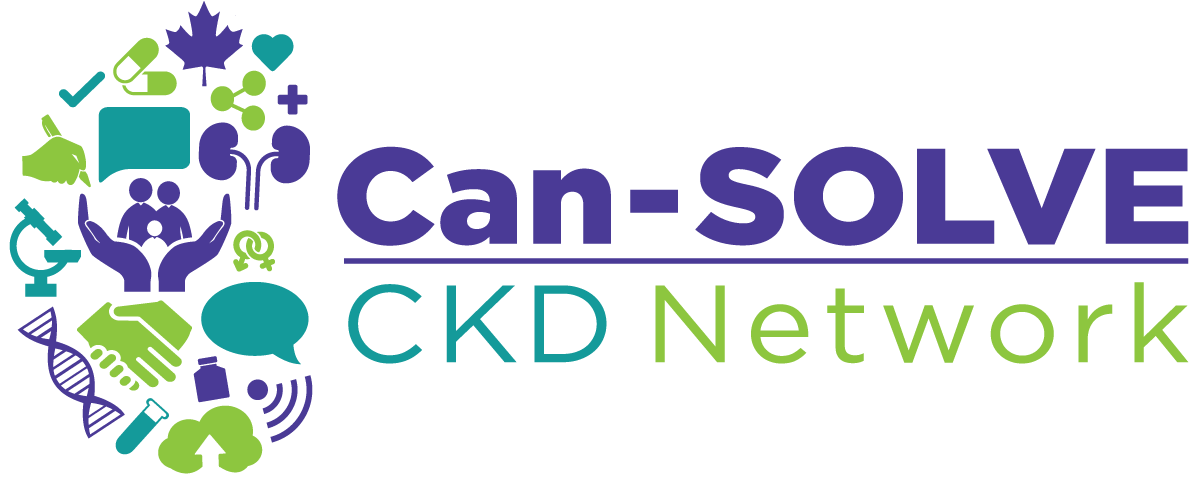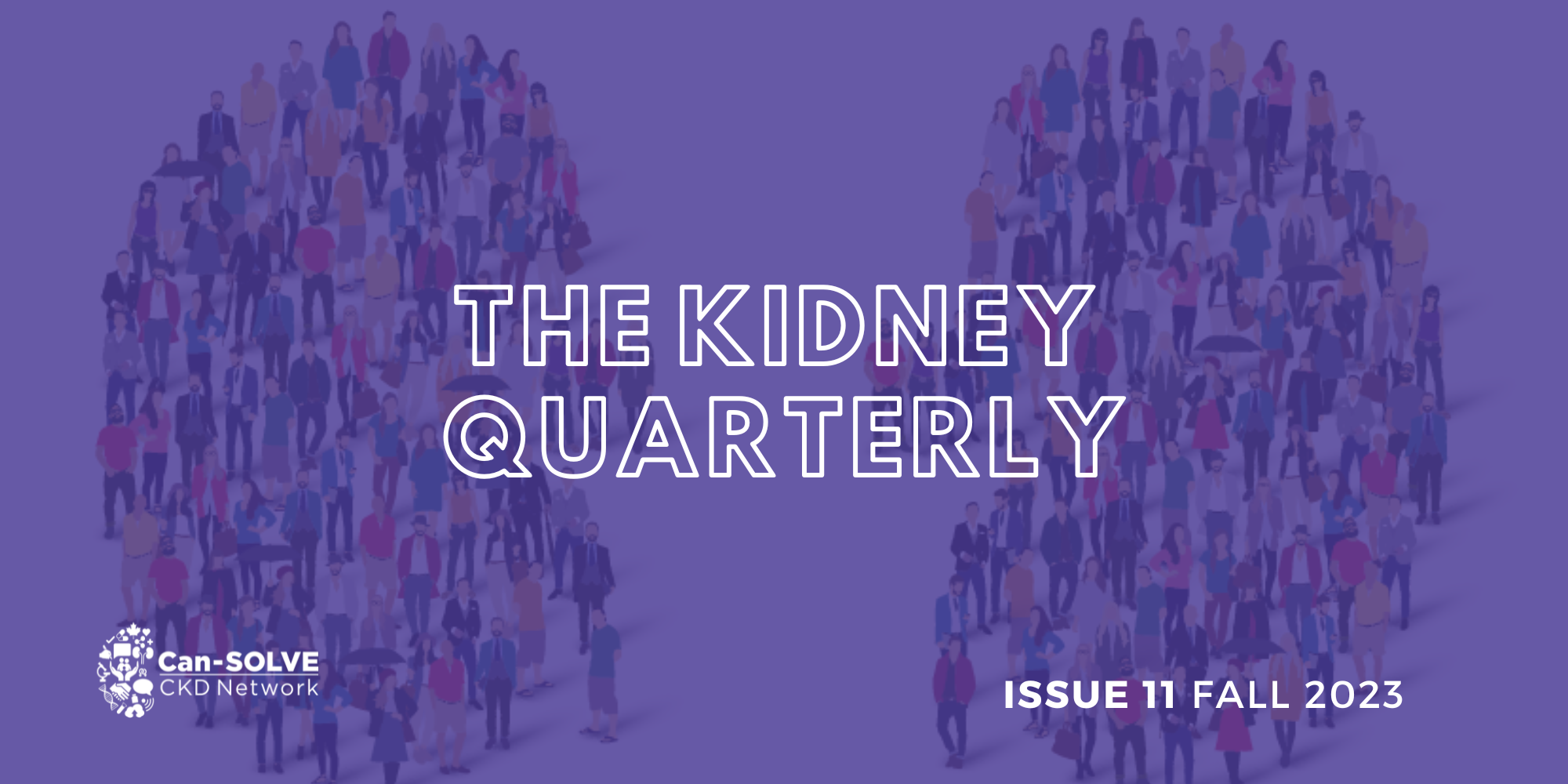
The Can-SOLVE CKD Network is uniquely placed to take a leadership role in strengthening Canada’s kidney research environment.
We are creating new tools, infrastructure, and training designed to bridge knowledge gaps and facilitate greater involvement of patient partners. Resources such as KidneyLink, the Canadian Nephrology Trials Network, and our patient-oriented research training modules will increase research participation, enable robust clinical trials, and enhance the skills and knowledge of all who take part in patient-oriented research.
In this issue of The Kidney Quarterly, we look at some of the ways Can-SOLVE CKD is building Canada’s capacity for kidney research innovation.
Feature Story
“I just told the story of my life”: How a new course helps patients share their health journeys

Everyone has a story to share, and the Storytelling for Impact course helps patients bring their perspectives and experiences to researchers, doctors, and the public.
The workshop offers invaluable training on how to present an individual’s personal health journey for impact in a health care setting – and the effects are starting to show.
Arlene Desjarlais is a patient partner who didn’t even know she had a story to share when she first joined Can-SOLVE CKD. That changed once she was encouraged to participate in the Storytelling for Impact workshop.
Over the course of several weeks, Desjarlais worked with story coaches and her peers to hone her story ways that would resonate with health care providers and decision-makers while retaining its humanity and emotional core. She shared some of her experiences as a caretaker for her late husband Glen, who lived with a number of challenging health complications, including kidney disease. The story coaches kept asking her questions, she would write her story, and edit it several times over the course of the workshop based on their feedback.
On the last day, participants presented their finalized stories to the group via Zoom. “That’s when it hit me – holy mackerel! I have a story here,” said Desjarlais. “I just told the story of my life.”
Her story takes place in a hospital many years ago. Glen was being discharged, but there was uncertainty about the timing of his next dialysis session. This resulted in a tense exchange between Desjarlais and the doctor. Years later, Desjarlais encountered the same doctor – nephrologist and researcher Dr. David Collister – at a Can-SOLVE CKD event. The two subsequently shared their perspectives on their previous encounter, which proved to be a fruitful learning experience for both of them.
Their story underscores the importance of doctors listening to their patients’ needs, and also how powerful caretakers can be when they advocate for their loved ones. By taking the Storytelling for Impact workshop, Desjarlais found her voice as an advocate in many public forums too. She and Collister published their story in a 360 Case article in the Canadian Medical Association Journal and captivated audiences at the Canadian Society of Nephrology Annual General Meeting earlier this year.
Desjarlais notes just how impactful their story can be on audiences. “You see all the lightbulbs going off in the crowd while you’re talking, and you see how it impacts them,” she says, noting that one time a doctor even broke down and cried after listening to her talk.
Desjarlais emphasizes that the Storytelling for Impact course has not only helped her hone her story for public audiences, but has also helped her through the grieving process following Glen’s passing. “If I had not taken the Storytelling module, I really don’t know where I’d be in my grief process. I think I would have still been skating along with it, dealing with it but not really getting too deep into it,” she explains. “The module has been very cathartic – absolutely life-changing.”
Now that the Storytelling for Impact course is complete – and receiving positive feedback – Can-SOLVE CKD is looking to spread the word and expand enrollment. The creators of the module describe it in a recent paper in Research Involvement and Engagement.
Through the sharing of stories, patient partners have the power to reshape the kidney care landscape and ensure patient voices and priorities are at the forefront of kidney disease. More patient partner voices will bolster this vision.
Desjarlais recommends that other patient partners consider enrolling in the Storytelling for Impact module. “If you don’t do it for anyone else, do it for yourself,” she says. “I never knew I was a storyteller. Never knew. Now I tell everyone our story.”
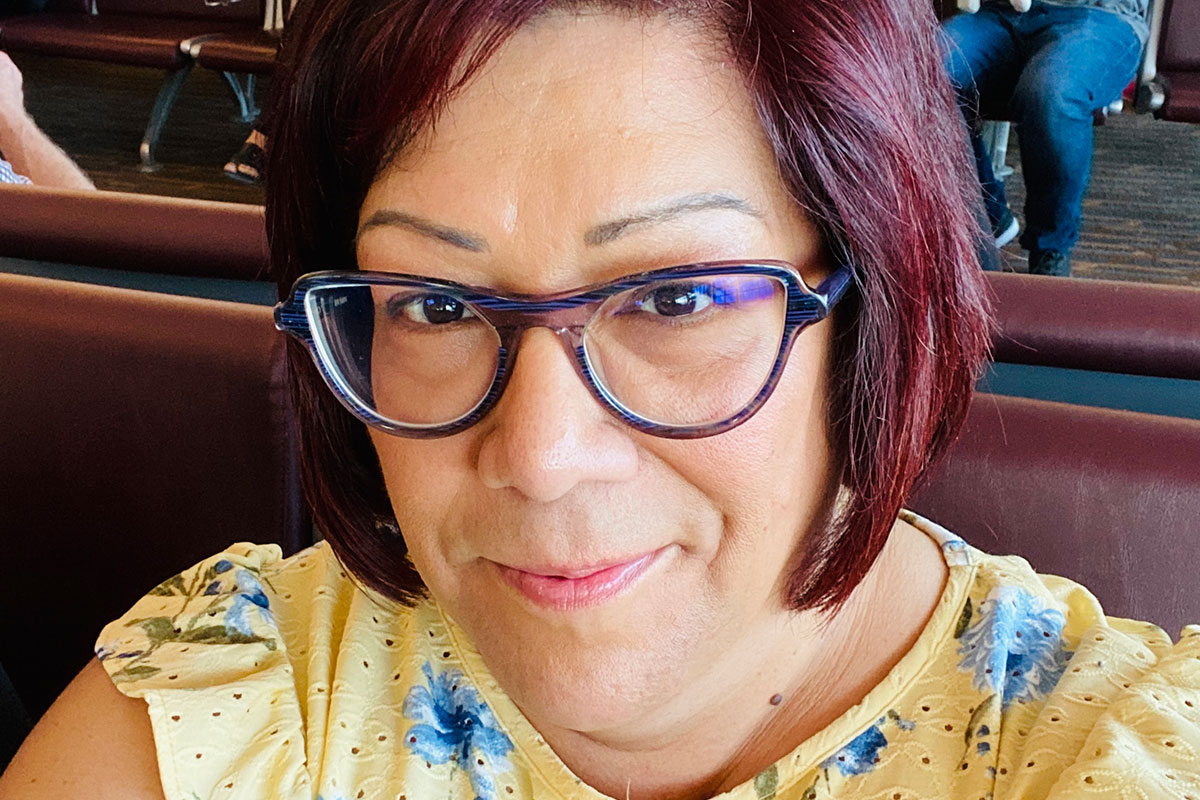
Arlene Desjarlais, Patient Partner
"If I had not taken the Storytelling module, I really don’t know where I’d be in my grief process. I think I would have still been skating along with it, dealing with it but not really getting too deep into it."
Arlene Desjarlais
Patient Partner
New Course Announcement
New course builds foundational knowledge of peer review
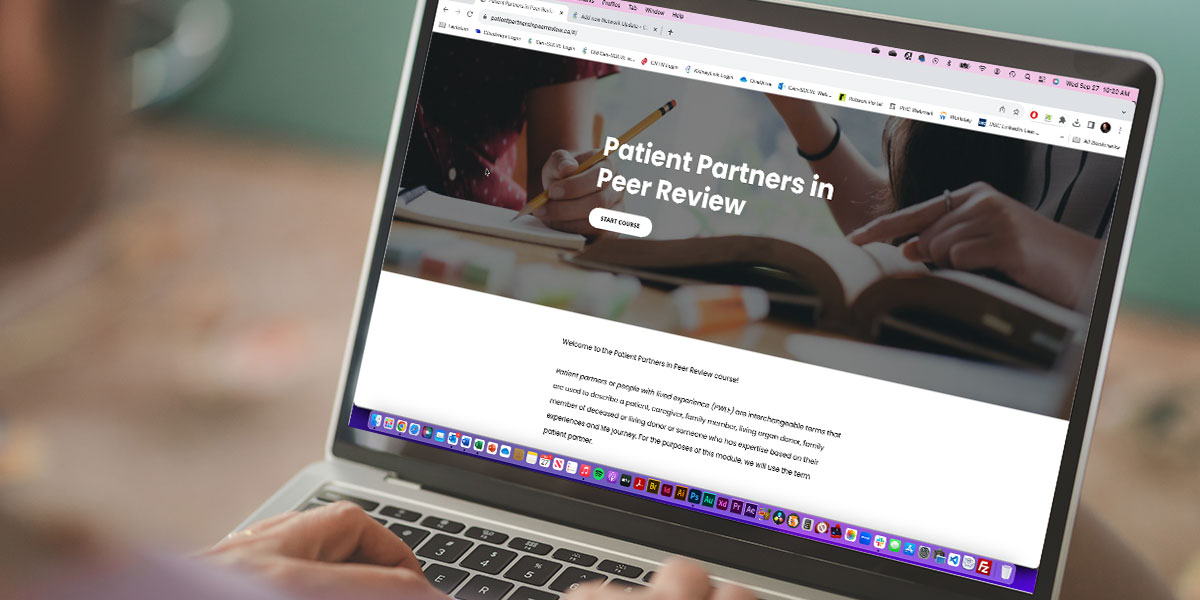
The Canadian Nephrology Trials Network (CNTN) was created to accelerate and improve coordination of kidney research across Canada – and a number of recent advancements and partnerships are helping to realize this goal.
The network is part of the Accelerating Clinical Trials (ACT) consortium, recently funded by CIHR, which comprises 28 clinical trial research networks across the country. Through this consortium, CNTN will receive funding to hire a research coordinator to conduct additional outreach and capacity building in support of network nephrologists who would like to conduct research. The ACT consortium will be providing CNTN with additional funds to develop mentorship and training opportunities within the network.
The CNTN is well experienced in supporting the involvement of patient in peer review of clinical trials. Recently, the network partnered with the Kidney Foundation of Canada and the Canadian Donation and Transplantation Research Program to produce a new training module for patient partners who are considering participating in peer review. “We’re one of the few networks that already has a process for doing peer review laid out and engages patient partners through it,” explains Alicia Murdoch, CNTN Project Manager. “So we are well positioned to help further improve capacity in peer review for kidney research.”
The module, “Patient Partners in Peer Review,” launched this September.
“It provides patient partners with a very foundational understanding of what peer review is, why it’s important, and how patient partners can be a part of it,” explains Murdoch, noting that the module will hopefully encourage more patient partners to become involved in research. “We’re hoping to share it across the country with all of those people who already do patient engagement, in helping them incorporate more patient partners.”
Murdoch says the CNTN is also undertaking an initiative to understand the barriers that community sites and allied health professionals face in taking on research. In March 2023, CNTN member and nephrologist Dr. Melissa Schorr conducted a survey of Canadian nephrologists as part of her Master’s thesis work, and a series of forums with small groups will take place in the near future to further discuss specific barriers identified in the survey.
“Academic people generally have a lot of support in their hospitals or research institutes, but community sites generally don’t have that [same level],” says Murdoch. “So this forum with community-based researchers will be taking those survey results and digging down a little further to see what these barriers are and how CNTN could maybe help remove some of them, especially now that we have the support of ACT.”
After the forum, a report will be released providing details on barriers and potential solutions.
“The aim is to really just reaching out beyond academic nephrologists, both in terms of location and profession,” emphasizes Murdoch. “We want to build capacity across the board, across the whole spectrum of care, and engage those people and understand what their issues are – and find solutions and ways to build capacity in Canadian kidney research. ”
“We want to build capacity across the board, across the whole spectrum of care, and engage those people and understand what their issues are – and find solutions and ways to build capacity in Canadian kidney research. ”
Alicia Murdoch
CNTN Operations Manager
Research Opportunities
Revamped KidneyLink aims to reshape the kidney research landscape
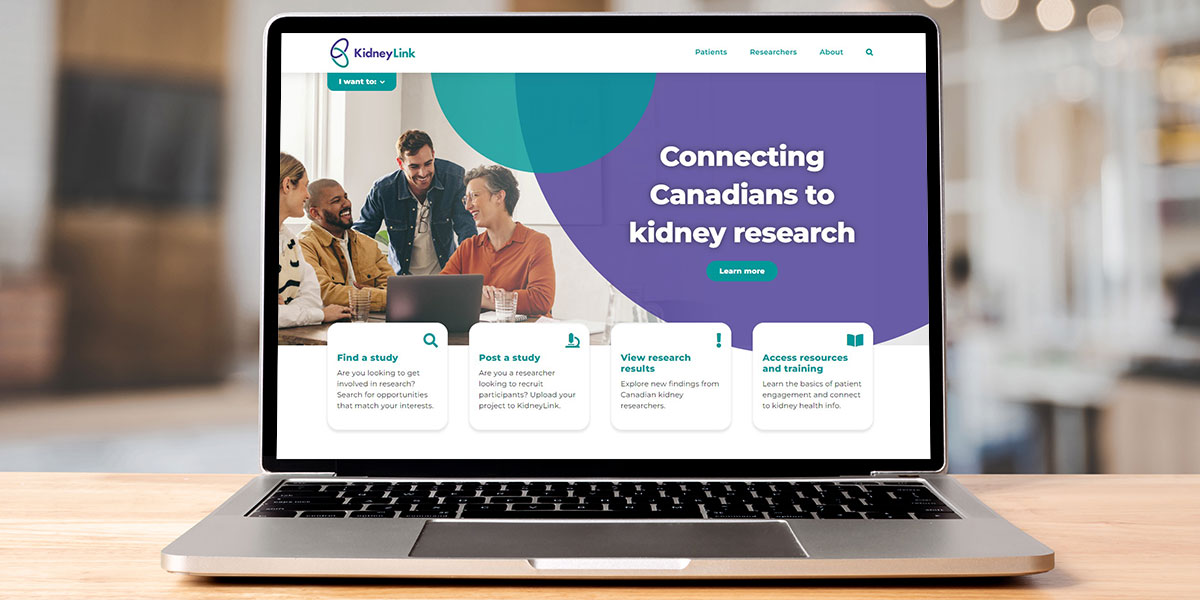
At Can-SOLVE CKD, our members have experienced first-hand the value in close partnerships between patients and researchers – but now it’s time to expand this vision beyond the network to include better collaboration between these groups across Canada. To support this goal, the network has recently launched a new and improved KidneyLink platform.
KidneyLink was originally launched in 2019 as a means for connecting researchers and people affected by kidney disease, including patients, family members and caregivers. It was designed to be a one-stop-shop where researchers can post studies and recruit participants, and patients can visit the site to learn about the opportunities available and more easily become involved. However, users reported some barriers to engaging with the site, such as the need to create a user account and the use of technical jargon to describe research.
Nancy Verdin is a patient partner at Can-SOLVE CKD who helped provide feedback on the platform and participated in its redevelopment. “It’s really hard for most patients, including me, to read through [technical research documents], so it was important that we started providing lay summaries of the research,” she explains. “The other thing we did was make sure it was straightforward and easy for our researchers [to use] as well.”
As a result, the newly relaunched KidneyLink platform no longer requires a username and password, and describes research opportunities and results in easy-to-understand lay summaries. The new website also features filters that allow users to easily search key categories and find what they are looking for (e.g., genetics studies, quality of life studies, etc).
“The idea is to [have the platform] be efficient, useful and something you want to go back to,” says Verdin.
Graham Pollock, Communications & External Relations Lead at Can-SOLVE CKD, notes that the team also partnered with the Kidney Foundation of Canada to build up a training section that helps demystify some of the questions around patient engagement. For patients, this includes resources to help them understand what it means to be part of a research team. For researchers, KidneyLink offers tools and resources to help integrate patient partners into their research teams and share the results of their work more effectively.
By bringing together researchers and patients on a single platform, KidneyLink aims to improve kidney research in Canada. “What we’re all trying to do is bring the patient voice more actively into research and use that lived experience and those insights that patients have to develop research that’s more relevant, aligned with what’s important to patients, and ultimately leads to better health for people affected by kidney disease,” explains Pollock.
Verdin, who shares her own lived experience with kidney disease with the Can-SOLVE CKD Network, emphasizes how beneficial it can be for patients and patient partners to become more involved in research. “When you’re first diagnosed, you’re shell-shocked,” she says. “But by looking up research and being able to find out what’s going on… I’m learning so much about how our doctors and researchers are truly looking to improve not only how kidney disease is treated, but how that impacts the quality of life for the patient.”
She sees KidneyLink as a valuable tool to continue building these partnerships and advancing meaningful, patient-oriented kidney research in Canada. “By building that network [via KidneyLink], I think we build the strength and the opportunity to make a difference in kidney care,” says Verdin.
“What we’re all trying to do is bring the patient voice more actively into research and use that lived experience and those insights that patients have to develop research that’s more relevant, aligned with what’s important to patients, and ultimately leads to better health for people affected by kidney disease.”
Graham Pollock
Communications & External Relations Lead at Can-SOLVE CKD
Connect with us!
Subscribe to learn more about what we do, why it matters, and how you can get involved!
